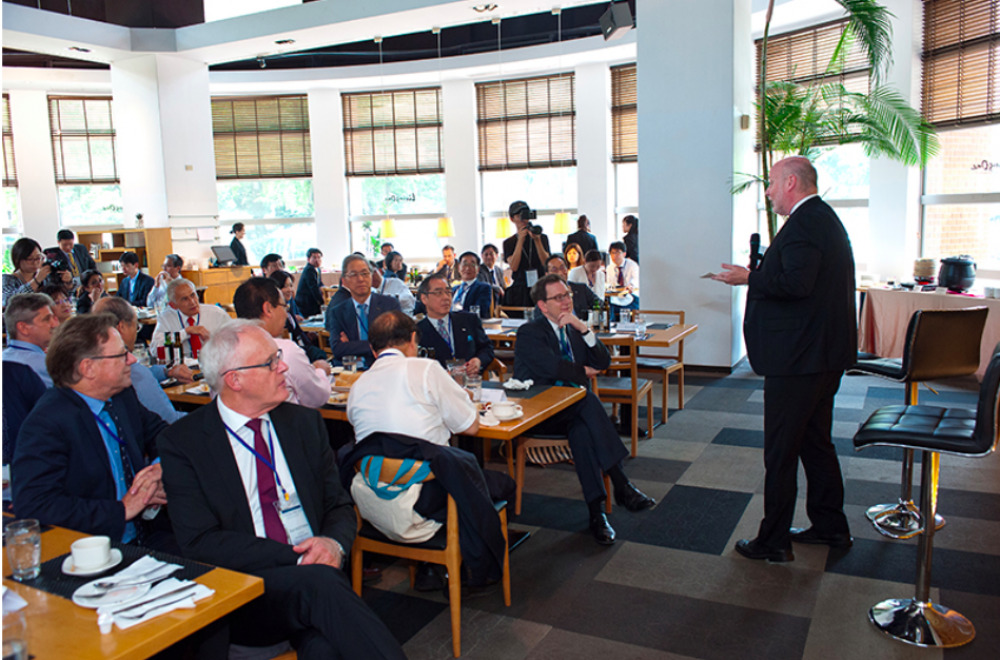Howard Gillman
University World News, Issue No:518
What can someone say on an American college campus and what can they not say? There have been debates about this question for as long as there have been colleges in the United States. But over the past few years the controversies have intensified.
Hardly a week goes by without another attention-grabbing event. Sometimes the outrage is that a controversial speaker has been silenced; sometimes it is that a controversial speaker has been allowed to speak.
Because many political conservatives believe that American campuses are hostile to their views, we also have conservative politicians intervening in campus free-speech debates. Legislation is being debated. Lawsuits are being filed.
As a result of all of this, higher education leaders in the United States have spent an enormous amount of time managing these conflicts and trying to understand how to balance the need to defend students against discriminatory attacks and the fundamental role of universities to protect the expression of ideas.
Getting the right balance
Over the last few years leaders in American higher education did not always do a very good job figuring out this balance. But over the past two years, every American leader of higher education has been working on this issue. A president or chancellor cannot attend a meeting of university leaders without the subject of free speech on campus being a topic. The last year the entire situation has become even more complicated.
When the controversial figure Milo Yiannopoulos scheduled a talk at the University of California, Berkeley, in January of 2017, the campus expressed a commitment to let him speak and prepared for protests. But in an unprecedented development, 150 anti-fascist ‘black bloc’ rioters descended upon the campus determined to instigate violence and start a riot, and that action overwhelmed the normal security arrangements of the university.
Later that year violent, racist ‘white nationalists’, such as Richard Spencer, demanded the right to speak at public universities, creating enormous security challenges.
In some cases the security costs for universities allowing such speech has been in the millions of dollars. At the same time, when universities do not spend the money, they are criticised for not protecting free debate on the campus.
Political interference
We are also beginning to see the federal government, through the attorney general, going after universities on the grounds that they are not doing enough to protect conservative or controversial speakers.
State legislatures are beginning to pass legislation demanding that universities take stronger steps against students who disrupt certain speakers. Many different committees of Congress have held hearings to examine whether federal funding for higher education should be tied to greater free speech protections.
Universities in the United States are now trying to figure out how to address the range of issues that have been raised. A few issues are garnering a lot of attention, but are still not resolved.
For example, every university in the University of California system has spent the last year looking at policies regulating the right of non-university speakers to speak on campus. If there are costs to the campus, how much can we charge without being accused of discriminating against certain viewpoints? What rooms must we make available?
We are also working on policies that address the efforts of some students to disrupt unwelcome speakers on campus, but these issues are complicated. When does disapproval of a speaker become an illegitimate disruption of the speakers’ rights?
We are also trying to create policies that promote safety without violating free speech rights. As stated before, cost is a big issue. When Berkeley decided to accommodate some speakers in the late summer of 2017 they ended up spending US$3.9 million dollars to ensure security – and obviously, such a practice is not sustainable across the country.
It is clearly not legal for campuses to charge more for groups that sponsor controversial speakers than for groups that sponsor popular speakers. But there has been no clear solution to the problem of how to support all speakers without requiring universities to go bankrupt.
Long-term effects
These free speech debates could very well have a dramatic long-term impact on the perception of higher education in the United States. Because political conservatives often feel less free to express their views, we have reached a point in the United States where almost two-thirds of people who identify with the Republican Party believe that American higher education is actually harmful to the country.
American higher education cannot survive in an environment where most people in one political party believe our role is dangerous for the future. Much of the discontent over the last few years is linked to these free speech debates.
Today’s debates about free speech on campus assume there is a fundamental conflict between defending the rights of all students to feel as if they are in a supportive environment and the right of individuals on a campus to express all ideas, especially controversial ones.
American higher education must resolve this debate if it is to continue to earn the ongoing support of people from a variety of backgrounds who see the value of education and research for the future of society.
Howard Gillman is chancellor of the University of California, Irvine, and author of Free Speech on Campus (Yale University Press). This is an edited version of his presentation at the Association of Pacific Rim Universities’ Annual Presidents’ Meeting held from 24-26 June in Taipei, Taiwan.

